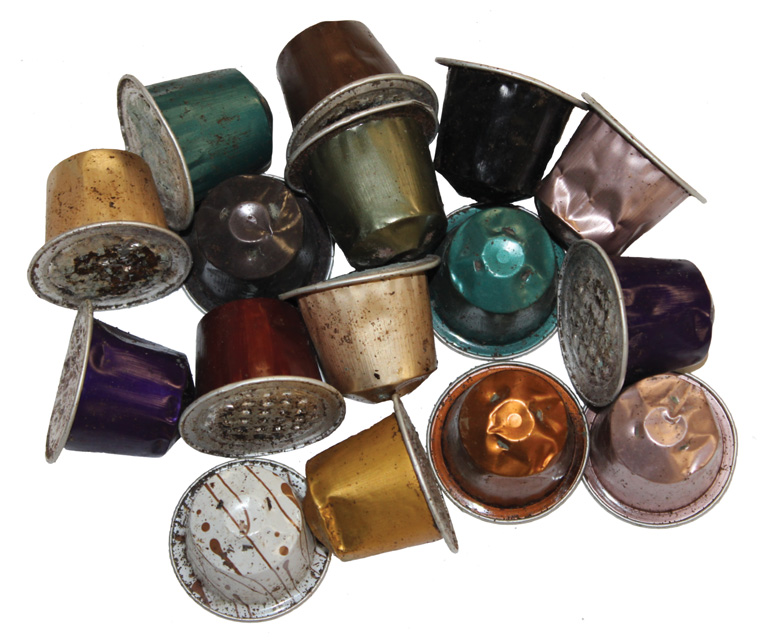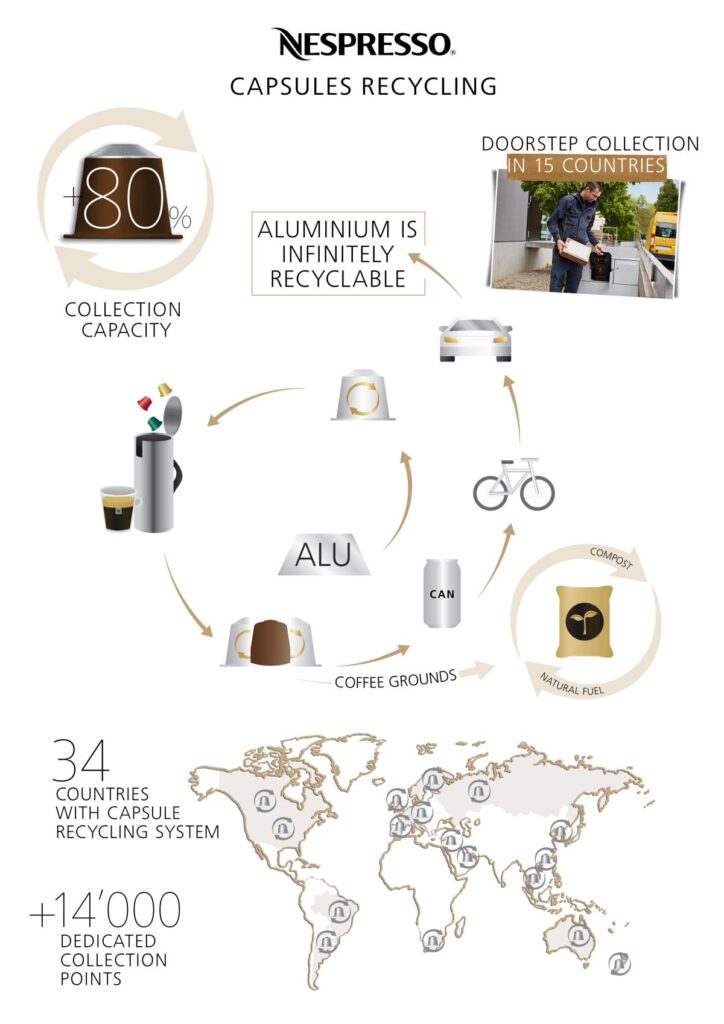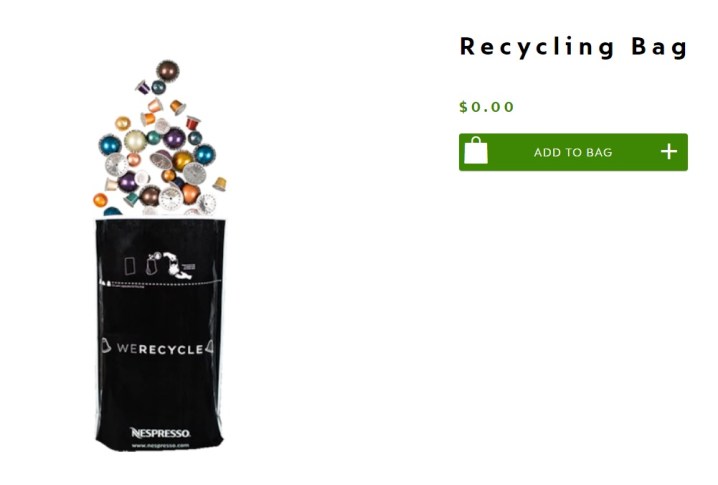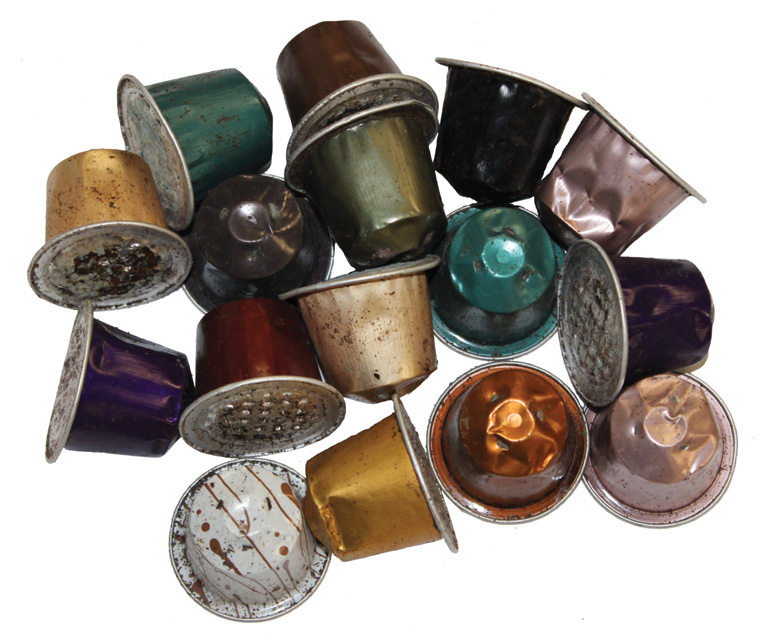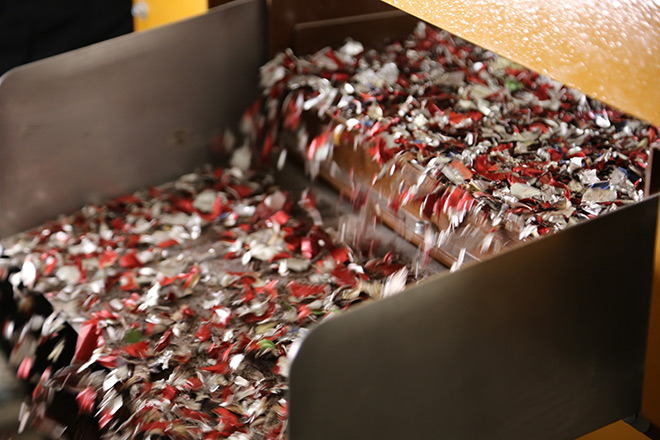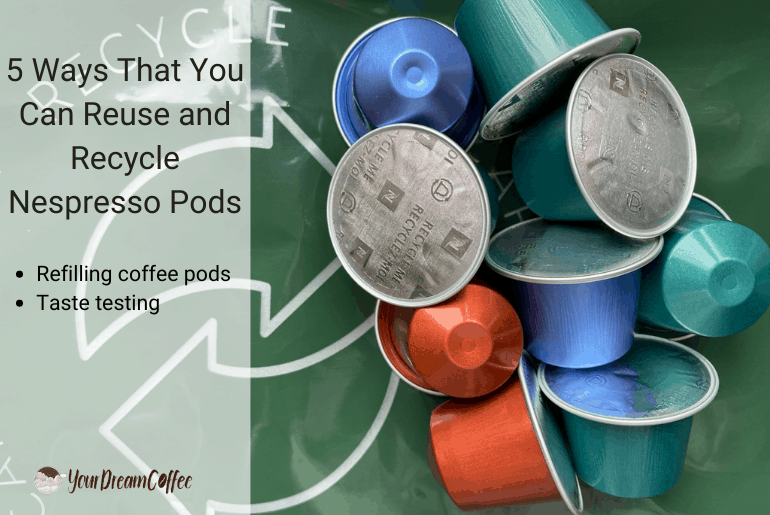Hey there! Today, I wanted to talk about something that has been on my mind lately – Nespresso capsules. You know, those little coffee pods that we all love for their convenience and delicious taste. But have you ever wondered if they are recyclable? Well, I sure have, and I decided to dig deep and find out the answer. So, keep reading to learn more about the recyclability of Nespresso capsules and what you can do to make a positive impact on the environment!
Curious to know if you can recycle your used Nespresso capsules? Well, I’ve got some good news for you! In my latest article on my website, https://nespressodude.com, I delve into the topic of Nespresso capsule recyclability from different angles. I’ll be exploring the various aspects of recycling these coffee pods, including the materials used, the recycling programs offered by Nespresso, and alternative recycling options. So, if you’re looking to become more eco-friendly in your coffee-drinking habits, be sure to check out my article to uncover the truth about Nespresso capsules and their recyclability. Stay tuned for some eye-opening information that just might change the way you enjoy your daily cup of joe!
The Environmental Impact of Nespresso Capsules
As a coffee lover and an advocate for sustainable living, I often find myself pondering the environmental impact of the products I use on a daily basis. One product that has gained immense popularity in recent years is the Nespresso capsule, a convenient and easy way to enjoy a delicious cup of coffee at home. But are Nespresso capsules actually recyclable? In this article, I will explore the environmental implications of these single-use coffee pods, the recycling options available, and the importance of responsible disposal.
The Problem with Single-Use Coffee Pods
Single-use coffee pods, including Nespresso capsules, have faced criticism for their contribution to waste generation. With millions of coffee lovers around the world consuming multiple pods each day, the number of discarded capsules quickly adds up. These single-use coffee pods often end up in landfills, where they take years to decompose and release harmful pollutants into the environment.
The Rise of Nespresso Capsules
Nespresso capsules, introduced in the early 2000s, revolutionized the way people prepare and consume coffee at home. With their sleek design and wide variety of coffee flavors, Nespresso capsules quickly gained popularity among coffee enthusiasts. However, this convenience came at a cost: the accumulation of non-recyclable waste.
The Importance of Recycling
Recycling plays a crucial role in minimizing the environmental impact of single-use products such as Nespresso capsules. By recycling these capsules, the materials used can be repurposed and given a new life, reducing the need for virgin materials and decreasing the amount of waste sent to landfills. Recycling also helps conserve energy and reduce greenhouse gas emissions associated with the production of new materials.
Understanding Nespresso Capsules
To fully understand the recyclability of Nespresso capsules, it is essential to delve into the way these coffee pods are designed and the materials used in their production.
How Nespresso Capsules Work
Nespresso capsules are designed to be used with Nespresso coffee machines. The machine punctures the capsules, allowing hot water to flow through and extract the desired coffee flavor. The used capsule is then ejected into a collection container.
Materials Used in Nespresso Capsules
Nespresso capsules are primarily made of aluminum, a material known for its excellent properties in preserving the flavors and aromas of coffee. The aluminum used in the capsules is sourced responsibly, ensuring traceability and sustainability. The capsules are also lined with a food-grade polymer that acts as a barrier and further protects the coffee inside.
Why Recycling Is Crucial
Aluminum is a valuable material that can be endlessly recycled without the loss of its properties. Recycling aluminum requires significantly less energy compared to mining and refining virgin aluminum ore. By recycling Nespresso capsules, we can conserve natural resources, reduce energy consumption, and minimize the carbon footprint associated with the production of new aluminum.
Recycling Nespresso Capsules
Nespresso recognizes the importance of responsible disposal and has implemented a comprehensive recycling program for its capsules. Let’s explore how you can participate in this program and ensure your Nespresso capsules are properly recycled.
The Nespresso Recycling Program
Nespresso’s recycling program is designed to make the recycling process as easy and convenient as possible for their customers. The company provides dedicated recycling bags or boxes, known as “Recycling Packs,” which can be ordered online or obtained from Nespresso boutiques and retail partners.
Collection Points and Drop-Off Locations
Nespresso has established an extensive network of collection points and drop-off locations where customers can return their used capsules for recycling. These collection points include Nespresso boutiques, partner stores, and dedicated recycling centers. The capsules collected through this program are then sent for recycling at specialized facilities.
How to Prepare Capsules for Recycling
Before recycling Nespresso capsules, it is important to prepare them properly to ensure efficient recycling. Nespresso advises customers to remove the coffee grounds from the capsules and rinse them with water to remove any residue. The coffee grounds can be composted separately or used for other purposes, such as fertilizing plants. Once clean and dry, the capsules can be placed in the designated recycling bags or boxes provided by Nespresso.
Alternatives to Recycling
While recycling is the most commonly recommended option for responsible disposal of Nespresso capsules, there are also alternatives that can further reduce the environmental impact of these single-use coffee pods.
Reusing Nespresso Capsules
One alternative to recycling Nespresso capsules is reusing them. Some coffee lovers have found creative ways to refill their used capsules with their preferred coffee grounds. This can be done manually by carefully opening the capsules, refilling them, and sealing them back. However, it is important to note that this method requires precision and may not result in the same quality coffee extraction as using new capsules.
Creative DIY Projects with Used Capsules
Another way to give Nespresso capsules a second life is through creative DIY projects. The compact size and unique shape of these capsules make them ideal for various craft projects. From jewelry to home decor items, the possibilities are endless. By repurposing the capsules in this way, we can add a touch of creativity to our lives while reducing waste.
Composting Coffee Grounds
Even if the capsules themselves cannot be composted, the coffee grounds inside them can. Coffee grounds are rich in nutrients and make an excellent addition to compost piles. By separating the coffee grounds from the capsules and composting them separately, we can turn waste into valuable organic matter that nourishes our gardens.
Efforts to Improve Capsule Recycling
Nespresso, along with other coffee capsule manufacturers, has been actively working to improve the recycling rates and make the process more accessible and efficient. Let’s explore some of the efforts and initiatives aimed at enhancing capsule recycling.
Collaborations with Recycling Companies
Nespresso has partnered with recycling companies and organizations to develop innovative solutions for capsule recycling. These collaborations aim to improve sorting and processing techniques, making the recycling process more effective. By working together, companies can leverage their expertise and resources to find sustainable solutions.
Technological Innovations for Easier Recycling
Nespresso has also invested in technological innovations to facilitate the recycling of their capsules. For example, the company has developed recycling machines that can separate the aluminum and polymer components of the capsules quickly and efficiently. These machines allow for better material recovery and increase the recycling rates.
Sustainability Initiatives by Nespresso
In addition to capsule recycling, Nespresso has implemented various sustainability initiatives throughout its supply chain. The company works closely with coffee farmers to promote sustainable farming practices, such as agroforestry and water management. Nespresso is committed to sourcing high-quality coffee beans in an environmentally and socially responsible manner.
Misconceptions About Nespresso Capsule Recycling
Despite the efforts made by Nespresso and the accessibility of their recycling program, there are still some misconceptions surrounding the recyclability of their capsules. Let’s debunk these misconceptions and address some common concerns.
Disposal of Nespresso Capsules in Regular Waste Bins
One common misconception is that Nespresso capsules can be disposed of in regular waste bins. While it may be tempting to simply throw the used capsules in the trash, this is not the most environmentally friendly option. Nespresso capsules are specifically designed for recycling, and proper disposal ensures that the valuable aluminum and other materials are recovered and reused.
Biodegradability vs. Recyclability
Another misconception is the confusion between biodegradability and recyclability. Nespresso capsules are not biodegradable, meaning they do not break down naturally into organic matter. However, their materials, particularly the aluminum, can be recycled indefinitely. Recycling is a more sustainable option than relying on biodegradation, as it preserves valuable resources and reduces waste.
The Truth About Aluminum Recycling
There is sometimes concern about the energy-intensive process of recycling aluminum. However, it is important to note that recycling aluminum saves approximately 95% of the energy required to produce aluminum from raw materials. This significant energy savings, along with the reduction in greenhouse gas emissions, makes aluminum recycling an environmentally responsible choice.
Recycling vs. Reusing: Which is Better?
When it comes to the disposal of Nespresso capsules, the choice between recycling and reusing is often debated. Each option has its advantages and considerations, and finding the right balance is key to minimizing the environmental impact.
Pros and Cons of Recycling
Recycling Nespresso capsules allows for the recovery of valuable materials, such as aluminum, and reduces the demand for new resources. It also conserves energy and reduces carbon emissions. However, recycling does require energy and resources for collection, transportation, and processing. It is important to ensure that the recycling process is efficient and that the recovered materials are used effectively.
Benefits of Reusing Capsules
Reusing Nespresso capsules by refilling them with coffee grounds can help reduce waste generation even further. Reusing capsules eliminates the need for additional packaging and reduces the carbon footprint associated with manufacturing new capsules. However, reusing capsules may not always result in the same quality extraction, and the process can be time-consuming and require precise preparation.
Finding the Right Balance
Ultimately, finding the right balance between recycling and reusing depends on individual preferences and available resources. While recycling should be the default choice for responsible disposal, exploring opportunities for reusing capsules can further contribute to reducing waste and conserving resources.
Government Regulations and Recycling Policies
Government regulations and recycling policies play a vital role in driving sustainable practices and holding both manufacturers and consumers accountable. Let’s explore some of the national and international legislation surrounding coffee capsule recycling.
National and International Legislation
Several countries have implemented regulations addressing the recyclability of coffee capsules, including Nespresso capsules. For example, in some European countries, manufacturers are legally obligated to provide collection and recycling solutions for their products. These regulations help ensure that manufacturers take responsibility for the environmental impact of their products and promote a circular economy.
Extended Producer Responsibility
Extended Producer Responsibility (EPR) is a policy approach that holds manufacturers responsible for the entire lifecycle of their products, including their disposal. By implementing EPR programs, governments can incentivize manufacturers to design more sustainable products and improve recycling rates. EPR policies have been instrumental in driving progress in coffee capsule recycling.
The Role of Consumers in Driving Change
As consumers, we have the power to drive change and demand more sustainable practices from manufacturers. By choosing products that prioritize recyclability and actively participating in recycling programs, we can send a clear message to manufacturers that sustainability is a priority. Consumer awareness and engagement are crucial for creating a more sustainable future.
Global Efforts and Success Stories
Internationally, several countries have made significant progress in coffee capsule recycling, demonstrating the positive impact of collaboration between stakeholders and the efficacy of recycling programs.
Countries with Successful Capsule Recycling Programs
Countries like Switzerland and Germany have achieved impressive recycling rates for coffee capsules. Through collaborative efforts between manufacturers, governments, and various stakeholders, these countries have established comprehensive recycling programs and consistently high recycling rates. By learning from their successes, other countries can implement similar initiatives and improve their recycling infrastructure.
Corporate Partnerships for Recycling Advocacy
Coffee capsule manufacturers have also joined forces with other corporations and organizations to further promote recycling advocacy. These partnerships aim to raise awareness about the recyclability of capsules and encourage consumer participation in recycling programs. By leveraging their influence and resources, corporations can make a significant impact on sustainability practices.
Positive Environmental Impact
The collective efforts and commitment to sustainable practices have resulted in a positive environmental impact. By recycling Nespresso capsules and other coffee pods, millions of pounds of aluminum and other valuable materials are diverted from landfills, conserving resources and reducing waste. Recycling also helps mitigate the environmental footprint associated with the production of new materials.
Challenges and Limitations of Capsule Recycling
While significant progress has been made in capsule recycling, several challenges and limitations still exist. Overcoming these challenges is essential for further improving recycling rates and ensuring a more sustainable future.
Contamination Issues
One major challenge in capsule recycling is the potential for contamination. Improper disposal, such as not rinsing the capsules properly, can lead to contamination of the aluminum with organic matter. Contamination hinders the efficient recycling of capsules and can result in lower-quality recycled materials.
Infrastructural Constraints
Another limitation is the lack of adequate recycling infrastructure in some regions. Not all areas have access to dedicated recycling facilities or collection points for Nespresso capsules. This can make it difficult for consumers to participate in recycling programs and may result in lower recycling rates.
Educational and Awareness Challenges
Educating consumers about proper recycling practices and raising awareness about the importance of responsible disposal are ongoing challenges. Many consumers may not be fully aware of the recycling options available or the environmental implications of their choices. Continued efforts in education and awareness are crucial for driving behavior change and increasing recycling rates.
Innovations and Future Outlook
Innovation and continuous improvement are key to overcoming the limitations of capsule recycling and driving sustainable practices forward. Let’s explore some of the innovations and future outlook for Nespresso capsule recycling.
Biodegradable and Plant-Based Capsule Alternatives
Nespresso has been exploring the development of biodegradable and plant-based alternatives to traditional capsules. These alternatives aim to reduce the environmental impact of capsules even further by using materials that can break down naturally over time. While these innovations are still in progress, they offer promising possibilities for a more sustainable future.
Advancements in Recycling Technologies
Advancements in recycling technologies hold great potential for improving the efficiency and effectiveness of capsule recycling. For example, new sorting techniques can separate different materials more accurately, increasing the quality of recycled materials. Additionally, advancements in capsule recycling machines can reduce energy consumption and improve overall recycling rates.
Nespresso’s Commitment to Continuous Improvement
Nespresso has made a firm commitment to continuous improvement in its sustainability practices, including capsule recycling. The company regularly reviews its processes, invests in research and development, and collaborates with stakeholders to find innovative solutions. By prioritizing sustainability, Nespresso is actively working towards a greener future.
Consumer Responsibility and Action
As consumers, we play a fundamental role in driving sustainability practices and ensuring a greener future. Here are some ways we can actively contribute to the recycling efforts for Nespresso capsules:
Educating Consumers on Proper Recycling Practices
Education is key to driving behavior change. By educating ourselves and others on proper Nespresso capsule recycling practices, we can ensure that the capsules are prepared for recycling in the most efficient way. Sharing information through blogs, social media, and community events can help spread awareness and encourage responsible disposal.
Encouraging Active Participation
Participating in Nespresso’s recycling program is a tangible way to contribute to sustainability efforts. By actively collecting and returning used capsules, we can ensure that they are properly recycled and given a new life. Encouraging friends, family, and colleagues to join the recycling program can also amplify the positive impact.
Spreading Awareness
Spreading awareness about sustainability and the importance of responsible disposal extends beyond our immediate circles. Engaging with local communities, organizations, and schools can help increase awareness and promote recycling advocacy on a larger scale. By working together, we can create a culture of sustainability and drive positive change.
The Importance of Collaboration
Sustainable solutions require industry-wide cooperation and collaboration. Manufacturers, governments, and consumers must work together to achieve a circular economy and minimize environmental impact.
Industry-wide Cooperation for Sustainable Solutions
Coffee capsule manufacturers, including Nespresso, have a shared responsibility to develop sustainable solutions and support recycling initiatives. By collaborating and sharing best practices, manufacturers can drive innovation and improve the recyclability of their products. Cooperation within the industry ensures a holistic approach to sustainability.
Government, Business, and Consumer Partnerships
Partnerships between governments, businesses, and consumers are essential for creating an environment that supports and encourages recycling efforts. Government regulations and policies can incentivize manufacturers to prioritize recyclability, while businesses and consumers can actively participate in recycling programs. These partnerships foster accountability and create an ecosystem that sustains recycling initiatives.
Achieving a Circular Economy
The ultimate goal is to achieve a circular economy, where resources are reused, recycled, and repurposed. This requires a collective effort to design products with recyclability in mind, promote responsible disposal, and invest in recycling infrastructure. By shifting our mindset from a linear “take-make-waste” approach to a circular one, we can create a more sustainable future for generations to come.
Conclusion
When we ask the question, “Are Nespresso capsules recyclable?” the answer is a resounding yes. Nespresso capsules are designed for recycling, and the company has implemented a comprehensive recycling program to ensure responsible disposal. By participating in this program and following proper recycling practices, we can contribute to minimizing waste generation and conserving valuable resources.
However, recycling alone is not enough. Exploring alternatives such as reusing capsules or composting coffee grounds can further reduce our environmental footprint. Government regulations, industry-wide cooperation, and consumer responsibility all play vital roles in driving sustainable practices and achieving a greener future.
As a coffee lover and advocate for the environment, I acknowledge the efforts made by Nespresso and the progress made in capsule recycling. However, there is still work to be done. Let’s continue to educate ourselves and others, actively participate in recycling programs, and spread awareness about the importance of responsible disposal. Together, we can make a difference, one Nespresso capsule at a time.

